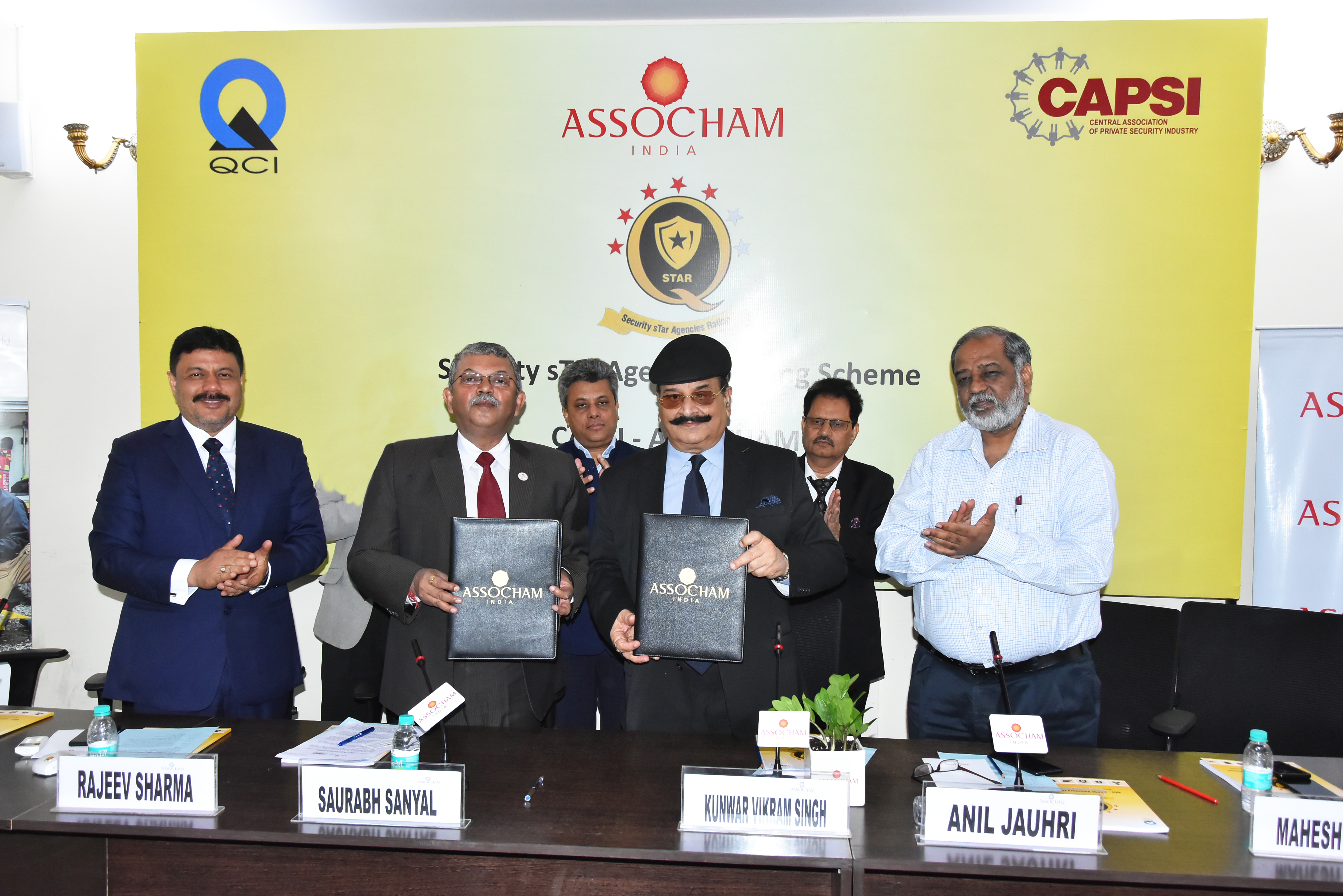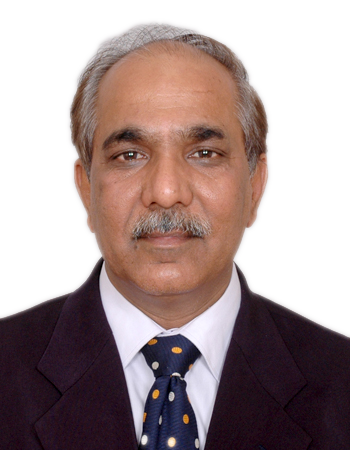The Central Association of Private Security Industry (CAPSI) has recently partnered with the Associated Chambers of Commerce and Industry of India (Assocham) and signed an MoU with them to accelerate the promotion and propagation of the ‘Security sTar Agencies Rating’ (STAR) scheme for private security agencies (PSAs). The MoU was signed jointly by Kunwar Vikram Singh, Chairman, CAPSI and Saurabh Sanyal, Deputy Secretary General, ASSOCHAM.

The ‘Security sTar Agencies Rating’ (STAR) scheme has been conceptualized and developed by CAPSI with the active help and support of the Quality Council of India (QCI), the country’s apex quality facilitation and national accreditation body. The scheme was launched in February this year during the Special Standards Conclave organized by the Ministry of Commerce in Mumbai. It, for the first time, introduces standardized labels of quality for the country’s 22,000 private security agencies. The scheme aims to regulate private security agencies on the basis of internationally accepted ISO standards.
“The scheme will prove to be a game changer in the overall functioning of the private security agencies in India. The STAR scheme envisages a ‘seven star’ rating system purely based on competence and compliance factors,” said Kunwar Vikram Singh, “Based on sound technical requirements and certification, STAR rating by CAPSI & QCI will give both private security industry and clients the confidence and assurance of providing high standard security services. The certification will open new horizons for the private security industry and provide a sound foundation for the recognition of this sector.”
 “Security sTar Agencies Rating Scheme is a landmark development for the Indian security industry. It brings the much-needed quality standards benefitting all stakeholders across the board. It would lead to encouraging good and effective security services providers and thus helping society in better crime protection and risk management. Its successful adoption would be a total game changer by establishing true confidence even with police and government authorities. Both CAPSI and QCI have shown a tremendous sense of responsibility in meticulously defining and establishing the certification criteria and volunteering themselves. ASSOCHAM is proud to endorse its implementation for the safety and security of end-users”
“Security sTar Agencies Rating Scheme is a landmark development for the Indian security industry. It brings the much-needed quality standards benefitting all stakeholders across the board. It would lead to encouraging good and effective security services providers and thus helping society in better crime protection and risk management. Its successful adoption would be a total game changer by establishing true confidence even with police and government authorities. Both CAPSI and QCI have shown a tremendous sense of responsibility in meticulously defining and establishing the certification criteria and volunteering themselves. ASSOCHAM is proud to endorse its implementation for the safety and security of end-users”
– Anil Dhawan
Co-Chairman, NCHS & DM – ASSOCHAM
Saurabh Sanyal commented, “It is a very unique step taken by CAPSI along with QCI to modernize and upgrade the private security industry. Over 4.5 lakh Assocham members and its 450 associations will adopt this advanced approach to private security management. Apart from physical security, we will also move towards addressing the modern day challenges related to cybersecurity.”
The certification levels range from a single star to seven stars with each successive one implying incrementally higher quality. A 1-star agency would merely need to be compliant with the regulatory requirements prescribed under PSARA 2005, while a 7-star agency would represent professionally managed security operations complying with the best global standards. The ratings would help domestic consumers make informed choices and bolster the country’s opportunities to export private security services.
“This initiative will work for the domestic market and help us expand services in other countries,” added the CAPSI Chairman, “Indian companies are already providing security services to customers in West Asia, Africa and Europe.”
 “The STAR scheme is a testimony to our commitment and embodies our belief that while Indian industry should adopt international standards, the industry may need to do so in phases, and hence there is a provision of levels of certification with the ultimate objective of meeting international standards like ISO 9001 as also domestic regulations. The QCI expects that it could take about six months before the first set of private security agencies prepare themselves for assessment to earn the stars”
“The STAR scheme is a testimony to our commitment and embodies our belief that while Indian industry should adopt international standards, the industry may need to do so in phases, and hence there is a provision of levels of certification with the ultimate objective of meeting international standards like ISO 9001 as also domestic regulations. The QCI expects that it could take about six months before the first set of private security agencies prepare themselves for assessment to earn the stars”
– Anil Jauhri
CEO, National Accreditation Board for Certification Bodies, QCI
Earlier this year, a team of four CAPSI members facilitated by the Union Ministry of Home Affairs and External Affairs, Government of India, visited Qatar and met local officials to explore and discuss opportunities towards the security requirements during the FIFA World Cup sched uled in the country in 2022.
The certification seeking security agencies will be assessed on multiple technical and operational parameters including competence and quality of training, internal management practices, problem-solving capacities, equipment and resources, communication and documentation, and internal audits and so on.
In accordance with the governing structure, the STAR scheme has three bodies – Steering, Technical and Certification Committees. After due deliberations they have formulated various guidelines relating to the scheme. The scheme was approved by the Steering Committee headed by AN Roy, former DGP, Mumbai. While one star rating corresponds to the mere PSARA compliance, three star rating encompasses certain essential management compliances along with the basic PSARA criteria.
Similarly, five star rating corresponds to the criteria laid down in ISO90001(+) and seven star rating corresponds to the International ISO 18788. The intervening even number of star rating will be given to the PSAs who maintain sustained compliance for three years on their present rating.
The scheme has been welcomed by the security industry, the business houses, as well as government bodies.
